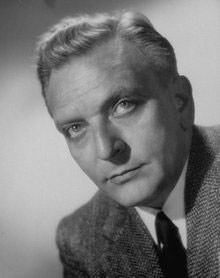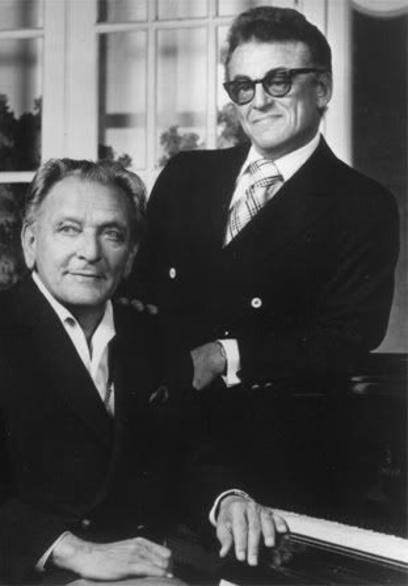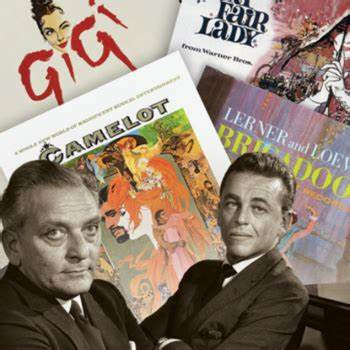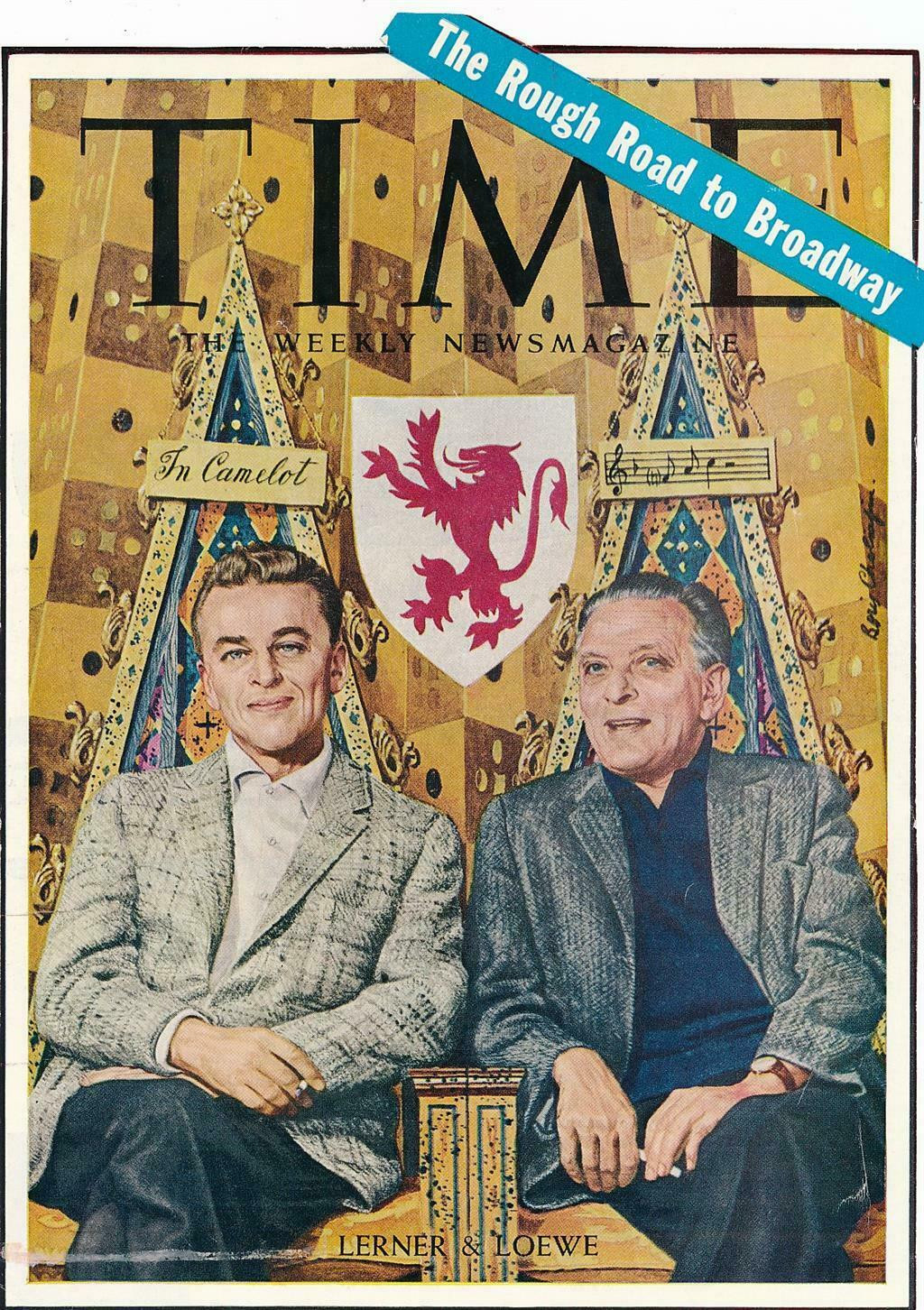Frederick Loewe Dies at 86; Wrote 'My Fair Lady' Score
By Stephen Holden
Feb. 15, 1988
Frederick (Fritz) Loewe, the composer who with his longtime lyricist partner Alan Jay Lerner created the scores for ''My Fair Lady,'' ''Camelot,'' ''Paint Your Wagon,'' ''Brigadoon,'' and ''Gigi,'' died yesterday in Palm Springs, Calif.. He was 86 years old.
The cause of death was cardiac arrest, according to John F. Morris, an artist and longtime friend of Mr. Loewe.
Among the most famous songs Mr. Loewe wrote with Mr. Lerner, who died in June 1986, was ''Almost Like Being in Love,'' ''I Could Have Danced All Night,'' ''On the Street Where You Live,'' ''I've Grown Accustomed to Her Face,'' ''If Ever I Would Leave You,'' ''Gigi,'' and ''Thank Heaven for Little Girls.'' The team's finest songs are marked by a contemporary conversational fluency and precision of phrase joined to a graceful Old World melodicism that looks back often wistfully to the turn-of-the-century operetta.
Lerner and Loewe, whose creative chemistry was comparable to that of Rodgers and Hammerstein, Dietz and Schwartz, and George and Ira Gershwin, were a less likely pairing than most other Broadway theatrical teams. Seventeen years older than his New York-born collaborator, Mr. Loewe came from the world of European operetta and in 1924 moved to the United States, where he struggled for years to gain a foothold in the musical theater.
The collaboration, which began inauspiciously in 1942, culminated 14 years later with ''My Fair Lady,'' a Broadway show that is widely regarded as the 50's Broadway musical at the pinnacle of perfection. For Rex Harrison, the nonsinging actor who played the role of Henry Higgins, Mr. Loewe invented melodies that matched to perfection his caustic, supercilious delivery. For Julie Andrews, who played the cockney girl whom Higgins turns into a lady, his melodic style extended from the clang of English music hall to the elegance of Straussian waltzes. Soloist With Berlin Symphony
Frederick Loewe was born in Berlin on June 10, 1901. His father was Edmund Loewe, a well-known Viennese tenor who created the role of Prince Danilo in ''The Merry Widow'' in 1906. A skillful pianist by the age of 4, Mr. Loewe studied the instrument in Berlin with Ferruccio Busoni and Eugene d'Albert, and worked on composition and orchestration with Emil Nikolaus von Reznicek. At 13, he became the youngest piano soloist to appear with the Berlin Symphony Orchestra. He also began writing songs at a young age, composing the tunes for a music hall sketch in which his father toured Germany. At 15, he wrote ''Katrina,'' a popular song that became an enormous hit across Europe.
Mr. Loewe's early songwriting success gave him the confidence to move to the United States in 1924. He gave a concert at Town Hall, followed by an engagement at the Rivoli Theater. But hampered by a tenuous command of the English language and a musical sensibility that was considered not ''American'' enough, he failed to achieve the success he had anticipated.
To support himself, he took a succession of odd jobs, from busboy to riding instructor to prizefighter, and even worked out West for several years, as a cowpuncher and a mail carrier. On returning to New York, he played the piano in beer halls and the organ in a movie house, but lost the latter job with the advent of talking pictures.
Mr. Loewe married Ernestine Zerline in 1931; they had no children and they were divorced in 1957.
To make contact with the musical theater world, he joined the Lambs Club, and in 1935 he finally sold his first song to Broadway. He earned $25 for the tune, ''Love Tiptoed Through My Heart,'' which Dennis King sang in a show called ''Petticoat Fever.'' The following year, another of his songs, ''A Waltz Was Born in Vienna,'' was interpolated into the unsuccessful revue ''The Little Show.'' In 1937, he and Earle Crooker collaborated on a musical, ''Salute to Spring,'' for the St. Louis Opera.
And in 1938, he composed his first full Broadway score, ''The Great Lady,'' in collaboration with Crooker. One of the bigger flops of the year, the show ran only 20 performances.
A Score in Two Weeks
It was a chance meeting at the Lambs Club in 1942 that brought Lerner and Mr. Loewe together. Henry Duffy, a producer in search of a new treatment of Barry Conners's play ''The Patsy,'' had asked Mr. Loewe to write a new libretto and update the lyrics of ''Salute to Spring'' for production in Detroit. The composer, who admired some lyrics Lerner had written for a Lambs Club revue, introduced himself, and two days later the two men boarded a train for Detroit, where they completed the score for ''Life of the Party'' in two weeks.
Though their next show, ''What's Up?'' (1943), directed by George Balanchine, lasted only 63 performances, they continued to collaborate. Their third show, ''The Day Before Spring'' (1945), ran for 165 performances and was the one that convinced them they had the right chemistry to continue as partners.
''We could feel the movement in the structure of our work, and it wasn't termites,'' the composer later quipped.
Their partnership was cemented with ''Brigadoon'' in 1947. For this show about a sleepy Scottish town that wakes up every hundred years, Loewe concocted music that inflected his soaring Viennese lyricism with a highland flavor, though at the time he had never been to Scotland. ''Brigadoon'' ran 581 performances and won the New York Drama Critics Circle award for the year's best musical. In addition to ''Almost Like Being in Love'' it yielded such ballads as ''Heather on the Hill'' and ''Come to Me, Bend to Me.''
''Paint Your Wagon,'' in 1951, proved to be the only successful Lerner and Loewe show with an American setting.
Set in California during the gold rush, the music again interwove a European musical sense with a rugged, booming feel for Americana. ''Paint Your Wagon'' ran on Broadway for 289 performances.
Many Refused 'Pygmalion' Idea
When the Hungarian movie producer Gabriel Pascal suggested that Lerner and Mr. Loewe adapt George Bernard Shaw's ''Pygmalion'' into a musical play, the team accepted a challenge that had already been turned down by a number of distinguished colleagues, including Noel Coward, Cole Porter, Dietz and Schwartz, and Rodgers and Hammerstein.
After struggling for five months to find a way of enlarging for the musical stage what was essentially a drawing-room comedy, Lerner and Mr. Loewe gave up and went their separate ways for two years.
But after Pascal's death in 1954, they decided to give it one more try.
The project, originally announced as ''My Lady Liza,'' arrived on Broadway as ''My Fair Lady'' in March 1956, with Rex Harrison and Julie Andrews in the roles of Henry Higgins and Eliza Doolittle. It was instantly and almost unanimously recognized as a masterpiece, and grossed nearly $12 million in the first two years of a Broadway run that totaled 2,717 performances.
''My Fair Lady'' transcended the Viennese tradition and incorporated powerful echoes of the English music hall.
The songs seemed to spring directly from the personalities of the characters with a freshness and immediacy that seemed unprecedented. The success of ''My Fair Lady'' initiated a deluge of musical adaptations of British literary classics.
Lerner and Mr. Loewe enjoyed almost equally enormous success in Hollywood with the 1958 movie musical ''Gigi,'' which won several Academy Awards, including the one for best picture. Adapted from the Colette novella, ''Gigi'' had many of the same elements as ''My Fair Lady,'' including a turn-of-the-century setting and a nonsinging leading man (Louis Jourdan) who delivered his songs as half-spoken monologues. It also gave Maurice Chevalier a signature song in ''Thank Heaven for Little Girls.''
A Box-Office Record
''Camelot,'' Lerner and Loewe's last major collaboration, was based on the T. H. White novel ''The Once and Future King'' and took its title from the domain of King Arthur. Although beset with problems, the show, which starred Richard Burton and Julie Andrews, earned what was then a record $3 million box-office advance, and ran for 873 performances.
The difference in their ages and Mr. Loewe's increasingly fragile health -he suffered a severe heart attack before the London opening of ''My Fair Lady'' - contributed to the breakup of the partnership. While Lerner went on to collaborate with Burton Lane, Leonard Bernstein, Andre Previn, and others, Mr. Loewe entered semi-retirement at his home in Palm Springs.
In 1973, Lerner and Mr. Loewe briefly reunited to write four new songs for a Broadway stage version of ''Gigi.''
The following year, they completed the score for an unsuccessful film adaptation of Antoine de Saint Exupery's ''Little Prince.''
Near the creative peak of their collaboration, Mr. Lerner characterized his working relationship with Mr. Loewe as pleasant and respectful.
''We have a detailed outline, scene by scene, and we know where the important musical revelations should be, and what they should say,'' he explained. ''Then I give Fritz a title and a paragraph that outlines to him what a particular song will be all about. He takes my title and writes a melody for it. When he's done, I go home and begin to write the lyrics.''
When Lerner died in 1986, Mr. Loewe was too ill to attend a memorial tribute at the Shubert Theater.
But the composer delivered the following message that was read by Kitty Carlisle Hart: ''I was always amazed how good we were and how simple it was,'' he wrote, and concluded with a fragment of a Lerner lyric: ''I loved you once in silence.
Farewell, my boy.''
There are no survivors.
ADVERTISEMENT
BY
Looking for more information?

 Amanda S. Stevenson
Amanda S. Stevenson 
 Amanda S. Stevenson
Amanda S. Stevenson 
 Amanda S. Stevenson
Amanda S. Stevenson 
 Amanda S. Stevenson
Amanda S. Stevenson 